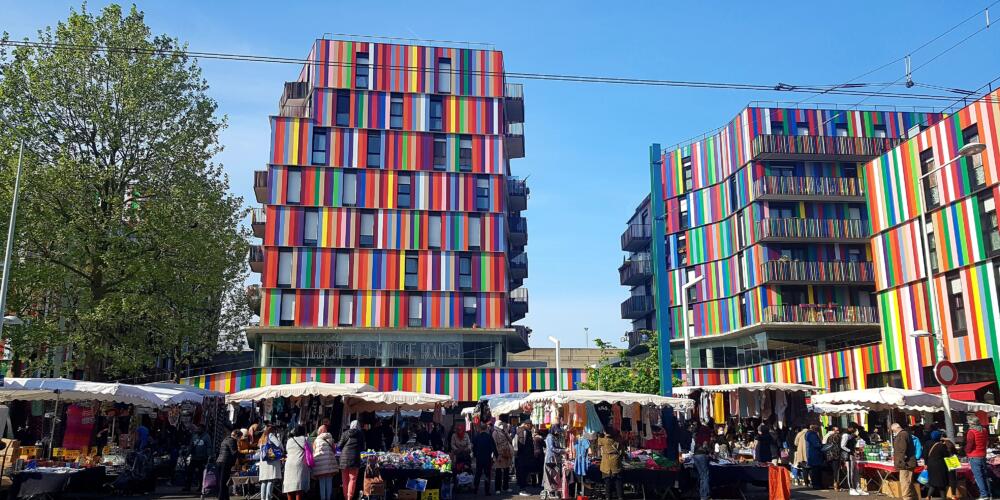
Project of the Month: PLURISPACE
By Alison MacDermott
Posted: 11 May, 2022
HERA is pleased to present the next Project of the Month: PLURISPACE.
Our project focuses on the integration of ethno-religious post-immigrant populations and policies for the management of diversity in public spaces. The aim is to investigate the relations between multiple approaches of integration and accommodation of diversity as well as to elaborate new perspectives of it, based on the experiences of the actors involved in the questions of integration.
Project Name
PLURISPACE: Negotiating Diversity in Expanded European Public Spaces
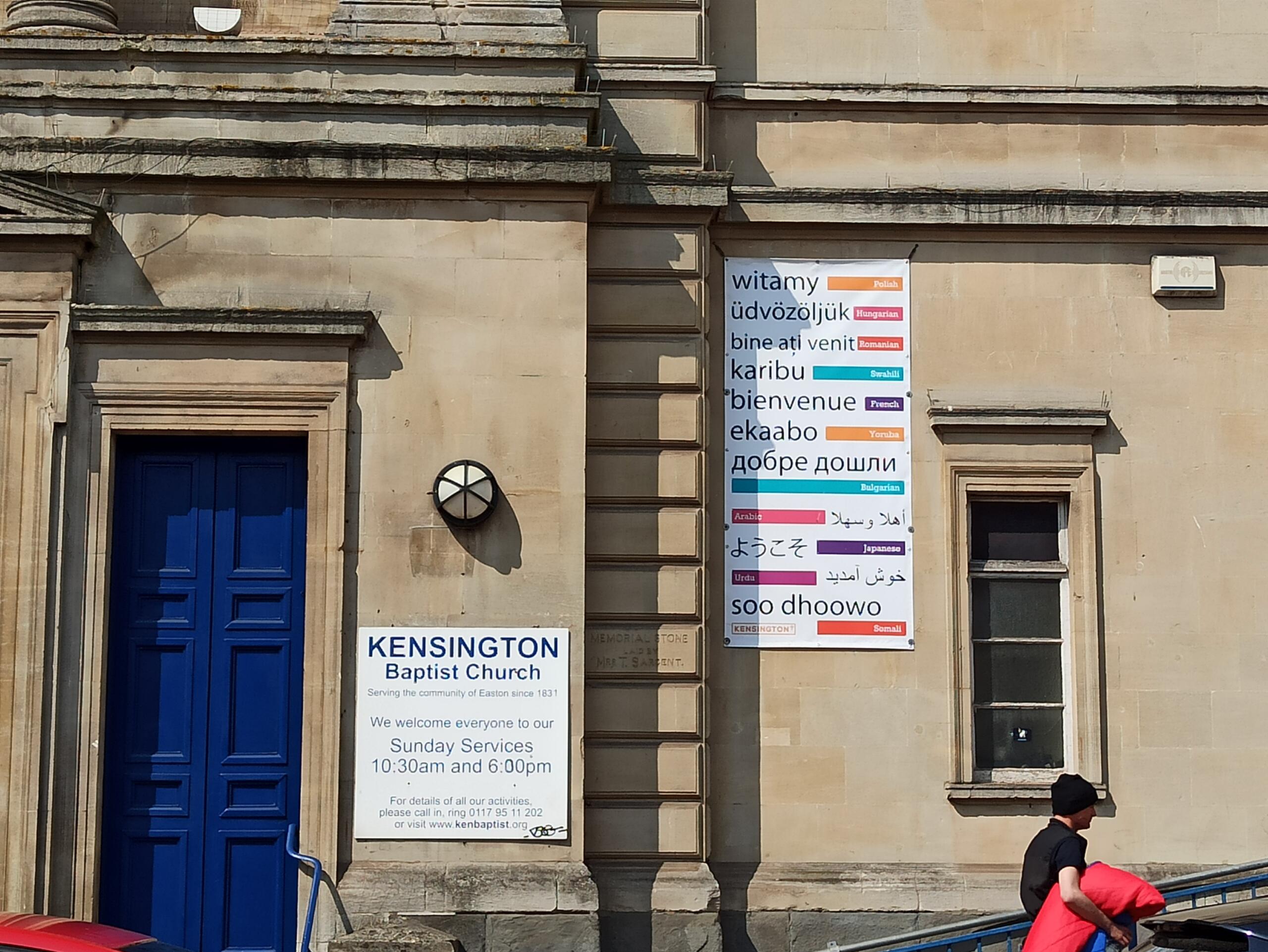
Image: A Baptist church in Bristol displaying a welcome poster in different languages
Project Team
- Riva Kastoryano
Project Leader, SciencesPo – CERI France - Tariq Modood
Principal Investigator, University of Bristol, United Kingdom - John Erik Fossum
Principal Investigator, University of Oslo, Norway - Ricard Zapata-Barrero
Principal Investigator, Pompeu Fabra University, Spain - Tamar de Waal
University of Amsterdam - Pier Luc Dupont
Research Associate, University of Bristol - Espen Daniel Hagen Olsen
Oslo Metropolitan University - Luana Franco Rocha
Research Associate, SciencesPo – CERI
- Thomas Sealy
Research Associate, University of Bristol
- Alexander Gamst Page
Research Associate, University of Oslo
- Zenia Hellgren
Research Associate, Universitat Pompeu-Fabra
Describe your project development to date
In the first part of the project, we developed and refined the analytical framework for comparing and contrasting PLURISPACE’s four theoretical perspectives (multiculturalism, interculturalism, transnationalism and cosmopolitanism). Then, we examined multilevel European structural and institutional conditions for post-immigrant incorporation by the assessment of official documents and discourses. We compared the results in the four countries involved in the project (France, Spain, England, and Norway) and cities (two cities as case studies by each country), and a multilevel European space. The objective was to get a sense of how the issues were discussed in public policy documents from each case, at different levels of governance. At the same time, we carried out a total of 75 semi-structured interviews with civil society actors, such as voluntary associations, official organizations, and some NGO in the four countries that are part of the project. The aim was to find out how leaders of voluntary associations, activists, city councils, leader of NGOs involved in the question of diversity perceive the 4 theoretical perspectives and to collect their views and suggestions regarding integration in order to develop a new normativity based on their experience. As one of the results of the interviews, we noticed a high level of hybridity among the approaches, which reinforces the idea that such theoretical aspects are not isolated, it is possible to establish connections to find the solutions that best correspond to the management of diversity in European public spaces.
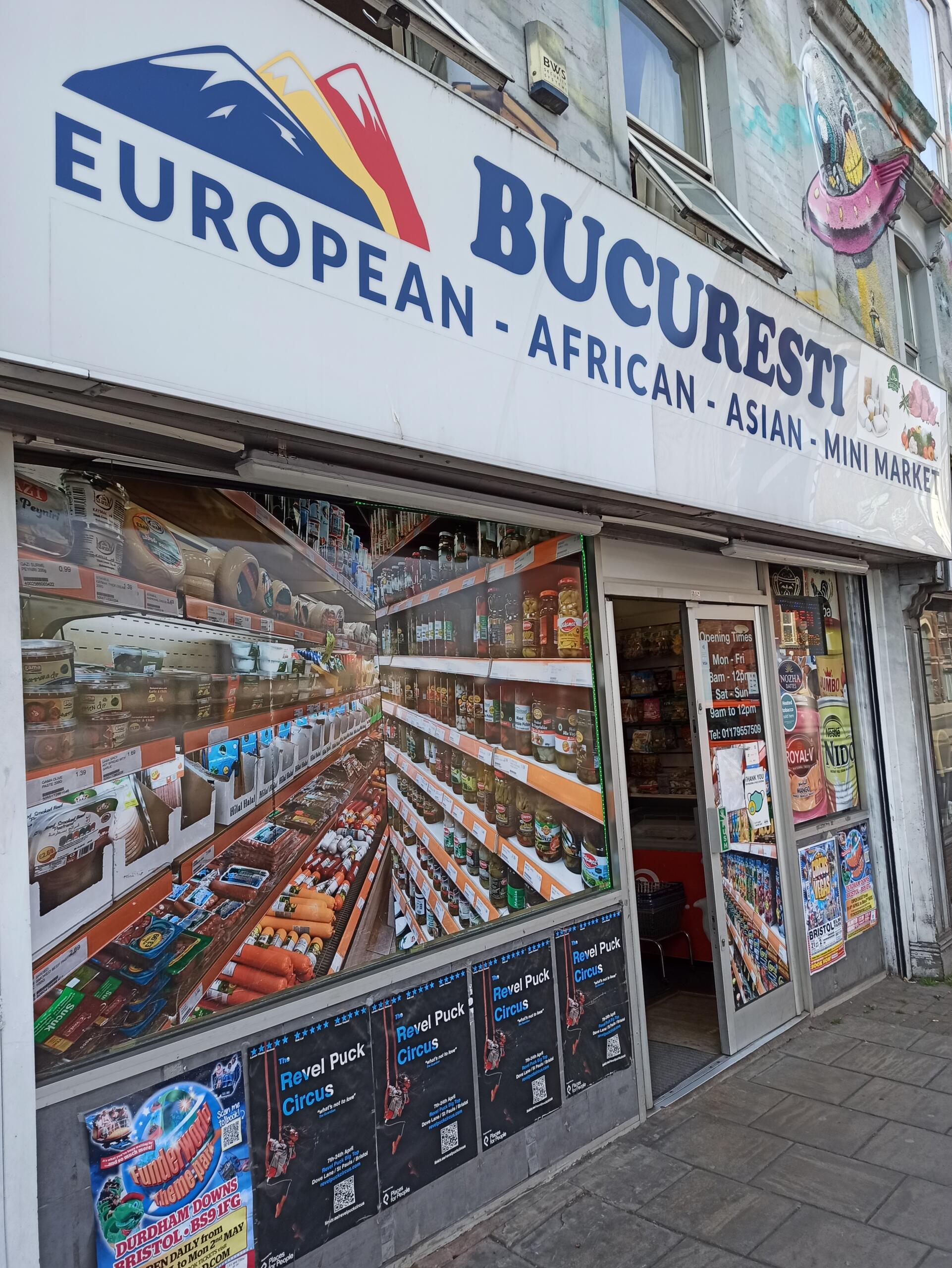
Image: A multicultural minimarket in Bristol
How did the pandemic impact on the project and how has the project adapted?
The pandemic prevented dissemination events from taking place and also directly affected data collection. The interviews had to be largely conducted virtually, through Zoom platform or by phone. Finding participants interested in collaborating in the project has also been a major challenge due to the pandemic, as many of the civil society organizations have had to redouble their workload to help people in precarious situations because of the crisis. Moreover, we decided to adjust our guideline for the interviews in order to ask representatives of civil society organizations if and how the pandemic affected on policies for diversity, or if they have perceived more solidarity or more discrimination during these challenging times. Despite all that, we are happy that we were able to overcome these challenges and managed to maintain good communication between the team even from distance.
Interesting Collaborations / Partnerships
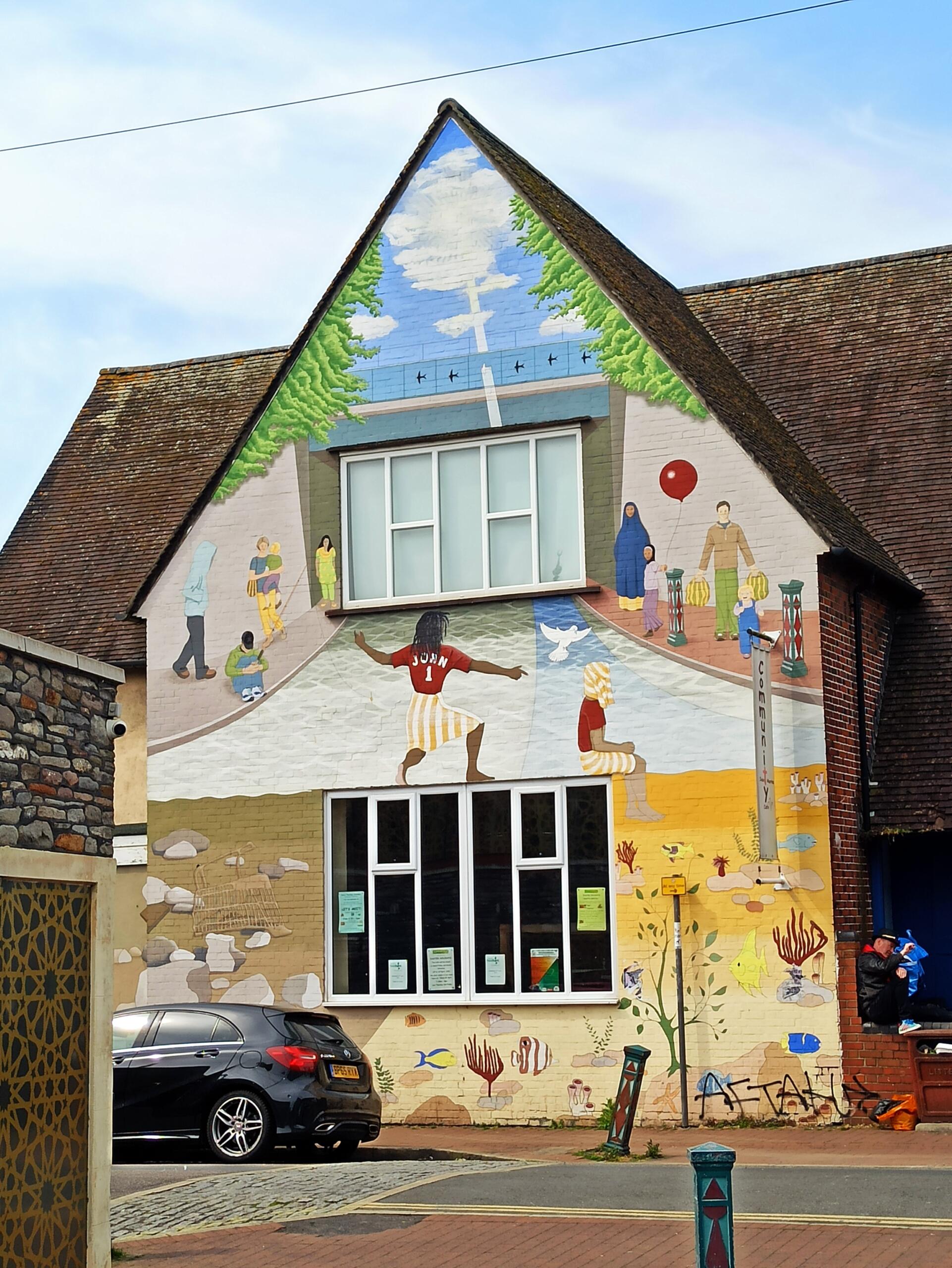
Image: Street art in Bristol
For their final stakeholder conference in London, which will bring together academics, civil society and policymakers, the British team will partner with British Future, a think tank founded in 2012 to shape public opinion around immigration and integration. British Future’s vision is one of an open, inclusive and confident society where there are no us/them distinctions between ethnic minorities and the white majority but rather a renewed conception of ‘us’. Some of its research and communication priorities revolve around maintaining public support for refugee protection, advocating proactive integration strategies that prioritise social contact and institutionalising these strategies at the city level.
Project Outputs
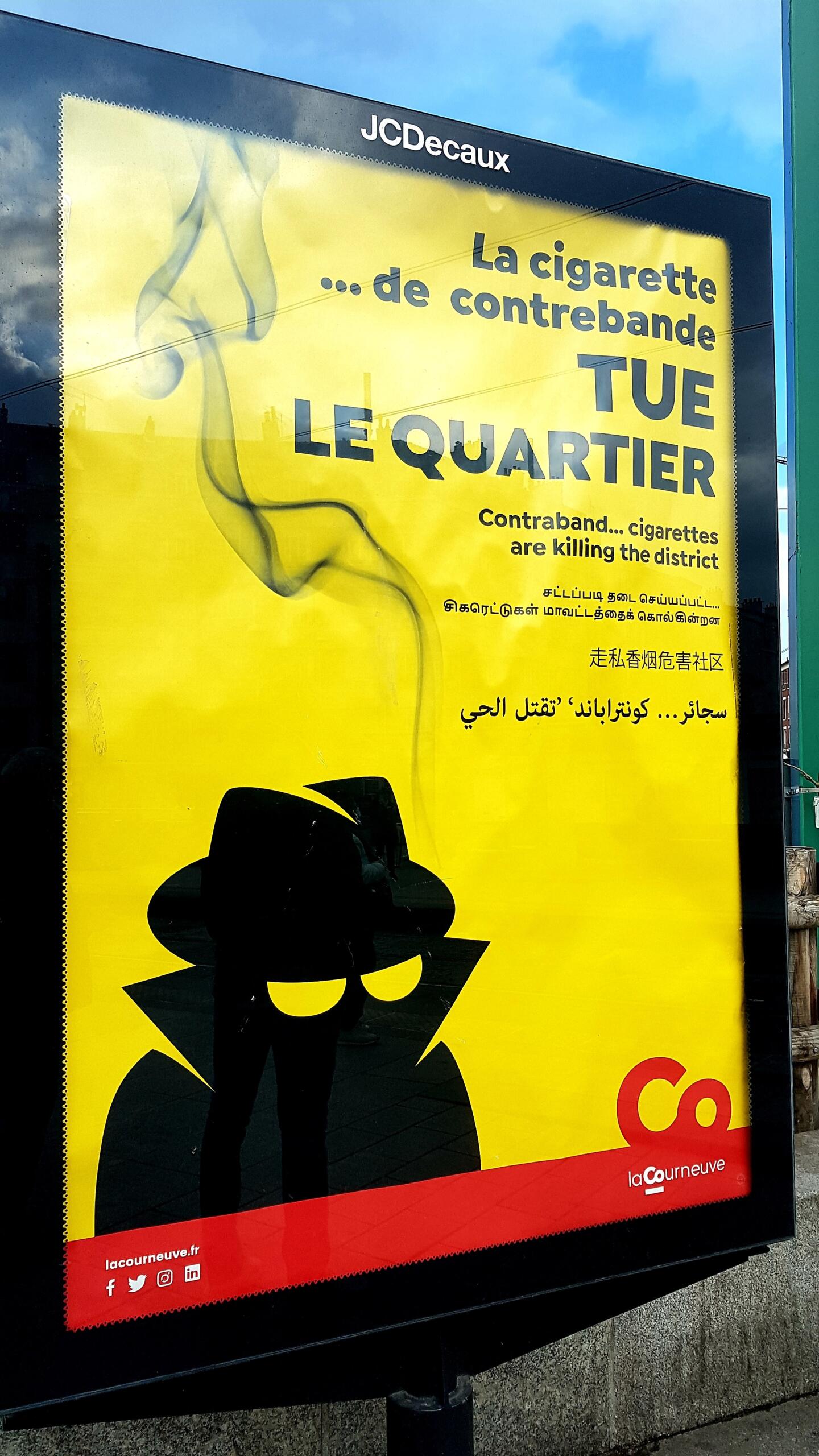
Image: A multilingual campaign by La Courneuve’s municipality against cigarette smuggling
Blogs:
In this blog post, our research fellow Luana Franco Rocha (SciencesPo Paris) writes about the idea of equality that dominates the French imaginary and the possible approaches to manage diversity and to fight against discrimination.
Our research fellow Pier Luc Dupont (University of Bristol) writes this blog post on the coexistence and combinations of different approaches for diversity management, especially multiculturalism and interculturalism.
Podcast:
- On this podcast, Luana Franco Rocha (SciencesPo Paris) talked with Riva Kastoryano (SciencesPo Paris) , leader of the PLURISPACE project and the principal investigators Tariq Modood (University of Bristol), John Erik Fossum (University of Oslo) and Ricard Zapata-Barrero (Universitat Pompeu Fabra) about the four concepts that are at the core of PLURISPACE (multiculturalism, interculturalism, transnationalism and cosmopolitanism) and how they are connected, as well as to some empirical outcomes.
Conference:
PLURISPACE’s next event will take place at the University of Oslo, May 30th – 31st. The workshop “Migrant Integration in Public Space: Normative and Methodological Issues and the Norway Case” will be the occasion to share theoretical insights with other scholars and to discuss about the field work in Norway.
Publications:
Within a complex and diverse European space, we identify in this article four policy/theoretical approaches to diversity management and understanding of public space: multiculturalism, interculturalism, transnationalism and cosmopolitanism. Each ‘ism’ has its own conception of public space, diversity, equality and solidarity. Our main aim is to contribute to the normativities that inform the theory and practice of integration and diversity governance in Europe.
This volume demonstrates that migration- and diversity-related concepts are always contested and provides a reflexive critical awareness and better comprehension of the complex questions driving migration studies. The main purpose of this volume is to enhance conceptual thinking on migration studies. The collaboration in the PLURISPACE project has been a useful forum for exchange of views and information in the preparation of their contributions to this book.

